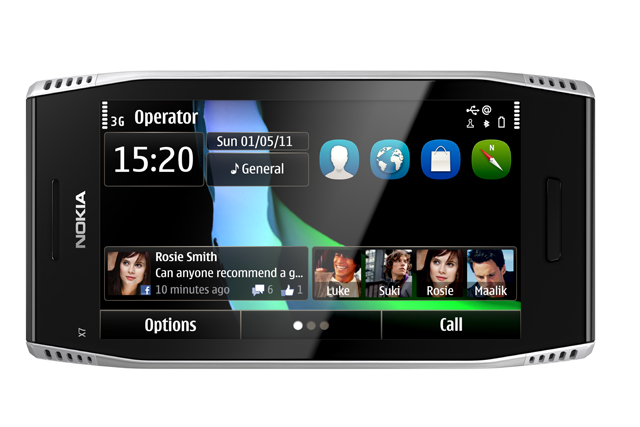So you're Europe's biggest technology company and the global market leader, by volume at least, for mobile handsets. On the face of it, it's hard to imagine how a company in such a position could find itself in the parlous state in which Nokia now lies.
Size means little in the technology world, however. In fact, the phrase 'turning around the tanker' is apt when one compares Nokia with its nimble, speedboat-like rivals - namely Apple's iPhone, Android phones and cheaper handsets from Far East manufacturers.
Shares in Nokia slumped 18% at the end of last month (see box) as it warned that sales and operating margins would be 'substantially below' previous forecasts. One analyst suggested the price could fall to EUR3, in contrast to the EUR65 high in 2000. Chief executive Stephen Elop acknowledged that 2011 would 'be a difficult year to get through'.
In a memo earlier this year, Elop told staff that Nokia was standing on a 'burning platform', referring to its Symbian operating system. In its attempt to redress the balance, it signed a deal with Microsoft in February, switching to its Windows Phone software. But with new phones not to due hit the market until the end of this year, will the brand find it hard to shake the association of an obsolete technology?
We asked Orange's former vice-president for global brand, Alex Batchelor, who is now chief operating officer of Brainjuicer, and Cameron Day, director of Albert, who previously worked on Sony Ericsson, including Ibiza Rocks, while at Iris Experience.
ALEX BATCHELOR CHIEF OPERATING OFFICER, BRAINJUICER
Nokia is broken. It must be depressing for newish chief executive Stephen Elop that he appears to have been the only person at Nokia who realised this.
I wonder, as a researcher, what its tracking data was saying for the past five years. If it wasn't warning of impending collapse, it wasn't worth the money. How can you possibly call the market leader - with a 10% advantage over number-two Samsung, in a category still growing at almost 20% a year - broken? Easy.
Nokia faces competition at the bottom end from manufacturers you haven't heard of, who are providing handsets for consumers in China, India and the developing world. Then there is competition in the middle market from Samsung and LG, which are responding quickly to any new feature sets that prove desirable. Nokia has been all but squeezed out of the top end, especially in North America, by Apple, BlackBerry and HTC. Symbian was the world's leading operating system at the beginning of 2010 with a 45% share, but is now the number two behind Android and heading rapidly toward 20% and below. Great businesses see the tipping points ahead of them and react quickly. Does Nokia hope for the best and keep trying to improve, or confess all and go for radical change? Its shareholders are hoping Elop has made the right choice.
Remedy
- Don't worry about North America, focus on developing markets and Europe.
- Retain alternative strategies for beating App Store/iTunes and Google. OVI and Navteq are underrated and apps and navigation/location are critical components of any future.
- Return to making phones with a decent interface.
CAMERON DAY DIRECTOR, ALBERT
Nokia continues to maintain its brand positioning of 'Connecting people', but in reality, over the past five years, it has been unable to deliver on this promise.
In a fast-paced and highly competitive sector, Nokia has fallen foul of the same mistakes a number of big, once-very-successful consumer tech companies have made, and lost touch with what once made it great. Its products were equalled and surpassed and it didn't adapt and innovate quickly enough.
It believed its own version of the future and, through several of its own decisions (Symbian OS, focusing on volume sales, missing the touchscreen/app market), a flaccid brand and technology shifts, it has been left to play catch-up, in a similar vein to Motorola, RIM and Palm.
It is hard to believe it has been four years since the launch of the iPhone, but the mobile market is showing no signs of reducing speed. The convergence of technology continues, along with innovations such as using your handset to pay for things in the real world. In fact, if anything, with the launch of the iPhone 5 around the corner, it feels as if the pace is picking up.
Remedy
- Look at how to communicate as a brand in a way that rings true to the Nokia of today and, more importantly, tomorrow.
- Use the relationship with Microsoft Mobile to exploit the Microsoft customer base and distribution, as well as the potential to create a third platform OS alongside iPhone and Android.
- Look to help define the future of how handsets are sold - away from traditional retail locations to new and innovative ways of demonstrating and selling.



